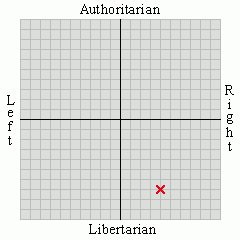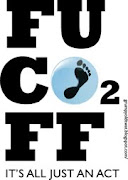Quite a lot of mining goes on in Australia since, contrary to the beliefs of the early colonists who thought that the continent was relatively resource poor, there are a lot of things buried here that have value if you're prepared to dig them up and sell them. Anyone with even a passing familiarity with Australian history will probably know that there was a gold rush - arguably more than one since gold was discovered separately in all the states, or colonies as they were at the time - and of course gold is still being mined today. There are plenty of applications for the shiny stuff but even if you consider just what ends up in the jeweller's shop window any gold that's come from Australian mines will probably have company from home nearby. Any dark blue sapphires you spot in there are likely to be Ocker and all or nearly all of the opals too. Diamonds? Aren't they all African? Nope. Nearly half are mined in Africa but Australia at least chips in there, and included in its diamond production are some of the rare - and pricey - coloured 'fancy' diamonds. In fact nearly all the world's pink diamonds come from one mine in the Kimberley, and of course wherever there are diamonds beautiful enough for jewellery there will also be plenty of non-gem grade stones for industrial applications. Australian mines may not produce everything from aluminium to zinc but they certainly produce both aluminium and zinc as well as copper, nickel, silver and coal. Australia is the third largest exporter of iron ore, the second largest exporter of uranium (since there is just one small research reactor* in Sydney almost all must be being exported instead of powering and lighting Australian homes - go figure, as the Yanks say) and the largest export of coal. There are open cast mines so large they can be seen from orbit and whole towns that exist today because something worth mining was discovered there, sometimes by pure fluke (like the opal town of Coober Pedy, which owes it's existence to gold prospectors looking for water stumbling across opal by accident).
In short, it's fair to say that mining is an important industry in Australia and, I'm told, raw materials make up a big chunk of the countries exports. I'm also told that the prices of these raw materials in the last decade or so have been pretty favourable towards the country, economy wise. I'm no financial whizz, though I'm vaguely aware that some of the mining company execs are very seriously minted, but if all that's true I assume that the benefit comes not just from the exports but also the employment provided by the mining companies. And in turn mining company employees at every level (as well as any shareholders who live here) will spend the money the industry makes them on other things and spread the mining money around. A miner from West Australia who spends a few dollars on fruit and veg benefits not just the local supermarket but possibly farmers thousands of miles away in the eastern states, who in turn will buy things they need or want. Having first passed through many pairs of hands a mining dollar may eventually a mining dollar end up in my pocket despite my having absolutely no connection with the industry or knowing anyone who has. And in return for this Kevin Rudd's government intends to impose a supertax on mining profits of 40%.
Now I suppose the guy has to balance the nation's books somehow and for all I know this is as good as any of the alternatives, but naturally the mining companies are less than thrilled about it and are running TV ads to explain why they don't agree.
The latest round in this sparring match is that Kevin Rudd has gone on radio to say that it's the mining companies themselves who are to blame for the supertax. Apparently he feels that the industry used to create infrastructure and now it doesn't anymore, so it falls to the federal government to step in and build what's needed and to pay for it by taxing the mining companies.
“The story I get on the ground from a lot of folk is that once upon a time mining companies tended to take on total responsibility for funding the infrastructure of towns, cities, regional developments,” Mr Rudd said.Oooooh-kay, let me stop you right there, Kevin. You are the Prime Minister of the Commonwealth of Australia and therefore the leader of the federal government, not any of the state governments. If this pressure is being put on the local and state governments why not leave it to them to decide how to raise the money? Thanks to Canberra income tax and GST is the same everywhere, which to me seems odd for what is theoretically a federation of competing states, but various other taxes - stamp duty, for example - are set by each state as they see fit. If the eeeevil miners need to pay more tax because this or that state is under pressure why not tax them just there in that state?
“But the criticism I hear in various parts of the country over the last decade or so is that they've withdrawn that level of support, putting more pressure back onto local governments and on to state governments.”
And secondly, Kev, isn't this a change of tax on your part? I mean, the other week the supertax was all about fairness, to use your term. You were telling everyone that the mining companies were making big, huge, fat pots of money and keeping it all to themselves instead of sharing the joy, although as I noted above the profits are indeed shared every time a mining company employee, exec or shareholder spends money on anything made, grown or sold in Australia. They can't eat whatever it is they're mining and they can't eat money, so just leaving them to go and buy stuff will share those profits just fine. Not only that but along the way the federal and state governments are getting revenue from income tax, capital gains tax, payroll tax, GST and for all I know one or two others that I don't know about. But I'm not arguing about whether the various governments are getting their pound of flesh so much as pointing out that until now you've been selling the supertax on 'sharing the benefits'...
... and all of a sudden it's actually because the selfish mining companies aren't building any more.
“We say that the sector of the economy most able to share a greater part of the burden for funding our infrastructure needs for the future is in fact our most-profitable mining companies - asking them to put a bit back in to the community in terms of the road, rail, ports and other infrastructure that the community needs.”Well, gee, thanks, but weren't they doing anyway that by spending money with people who spend money with people who spend money with people? And while Kevin Rudd may be right that they used to build infrastructure themselves and don't anymore might that have something to do with the fact that local, state and federal government have taken over that function? Look at Broken Hill in New South Wales, the country's oldest mining town. Isolated in the west of the state - and much, much closer to Adelaide than Sydney - and stuffed with silver and tin, it needed a way to get the ore to where it could be refined and exported, and in 1888 the Silverton Tramway was opened to connect the town by rail to Por Pirie in South Australia. The 30 miles of tramway was constructed by a private company (not actually a mining company, though it seems unlikely that the tramway would ever have existed but for the mining at Silverton and Broken Hill), bearing out Kev's point that back in the day it was the private sector building this stuff instead of leaving it to government. Incidentally, the New South Wales government still played a part in the creation of the tramway - they refused permission for the SA government to carry on building their Adelaide line over the NSW border to Broken Hill, leaving little option but the private sector and the way open for the Silverton Tramway Company. Private money also constructed the reservoir, and in the days before Medicare may also have attracted medical staff. Being stuck in a 19th century mining town in the middle of a desert might not have been a lot of laughs but it probably paid pretty well or nobody would have wanted to go. Maybe all the private investment in the town back then was non-mining company money, but you can be sure that those companies in turn profited from the mining companies. How much did the miners pay the Silverton Tramway Company for transporting ore all those years?
But lets imagine a big new find today. Let's imagine that a big lode of an enormously useful mineral is found, say, in a deserty bit of the middle of nowhere between a couple of deserts that contain nothing much. At the very least they'll need transport links, just as Broken Hill did 120 years ago, but if the deposit is big enough the mining companies that move in will be after so many staff that it'll be worth constructing permanent accommodation, and if people are going to live there in any numbers then there'll also need to be shops, schools, medical facilities, water and electricity supplies and so on. And yes, Kevin, just as you say a certain amount will inevitably be paid for out of the public purse instead of by the mining companies. How can it be otherwise when governments insist on doing it anyway. Why would they construct a road or a railway, or rather another road or railway, when you lot are going to build them? Why would they build a school and hire teachers when the state will do that too? For the mining companies it would be a waste of money and for everyone it would be redundant.
So yes, Kevin, you do have a point that much of what was once paid for by the industry must now be paid for by government, and that means it's got to come from taxes. The thing is, though, the mining industry does pay a little bit of tax here and there already. In fact they say they've paid $80 billion in tax over the last decade (PDF from www.australiancoal.com.au), which they feel is already more than their fair share:
While making up about 8 per cent of the economy, mining companies contributed about 18 per cent of corporate income tax revenue during 2008-9.And how much extra do you feel they should pay, Kevin?
$12 billion.
$12 billion which won't go into the pockets of the evil, greedy, capitaliiiiist fat cats running the industry, sure. But it's also $12 billion that can't go into shareholder dividends or employee wages, which means $12 billion that they can't spend in regular businesses up and down Australia. Okay, maybe we'll all be happy with whatever you decide to spend the $12 billion on, though it should go without saying that you can't please all of the people all of the time so this is far from guaranteed. But what I can guarantee you is this:
However much mining profits eventually end up in my hands and the hands of any individual in Australia, for certain we'd be happy with whatever we each chose to spend the money on.
* They called it OPAL, which not only suggests the importance of opals to Australia but also sounds suspiciously like another example of thinking up the cool acronym first and then having a meeting to work out what it should stand for.



















